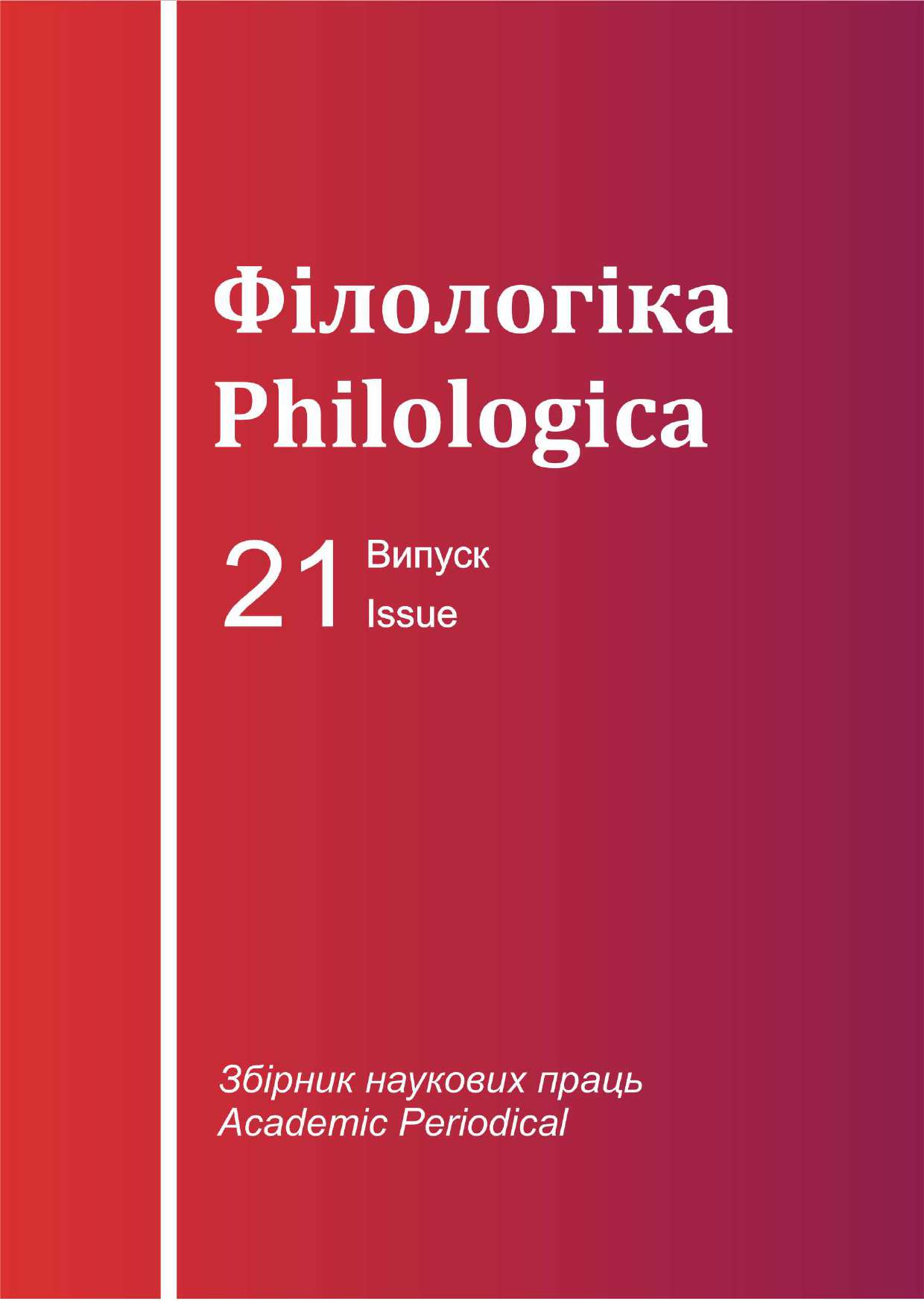Globalization processes and their consequences for national ecolingual systems
DOI:
https://doi.org/10.31812/filstd.v21i.4749Keywords:
globalization, ecolinguistics, ecolingual balance, ecolingual system, global language, borrowing, national identityAbstract
This paper clarifies the essence of the “globalization” phenomenon within the aspects borrowed from the Western socio-political, economic and cultural lifestyle. It investigates globalization processes through the prism of ecolinguistic theory and their influence on the national ecolingual system. In addition this paper outlines the situations according to which, human civilization has felt and will feel the need for certain means of intercultural, interethnic communication. In the same time the following tendency is observed as using national languages is considered to be inadequate, and thus the global language of international communication is declared. It emphasizes the lack of intralinguistic mechanisms that will serve as a barrier to the emergence of a universal supranational semantic code. Moreover this research manifests the possible irreparable consequences of so called linguistic globalization, as there is an undisguised threat to ethnolinguistic planetary diversity, and expansion of the “global language”. The later results of globalization processes can lead to the violation of a stable ecolinguistic balance, and hence to the depersonalization of certain national communities through voluntary and forced “abandonment” of the basic means of national identity. The position of the Ukrainian state on the protection of the national language and culture is presented. The situation in Ukraine shows limited, defective functioning of the state language, imbalance between its nominal and actual role, constant obstacles to the expansion of Ukrainian-language communicative space, lack of favorable conditions for its development, healthy language competition, etc. This paper focuses on the idea that the process of borrowing is inevitable, as it is a natural practice that promotes the renewal of certain lexicons; it complicates both the personal conceptual systems and the conceptosphere of the ethnos; it stimulates international contacts, closer to the achievements of civilization, etc. Although the following phenomenon is observed as the modern Ukrainian lexicon is too saturated with foreign-language, in particular with English-speaking samples. This paper highlights the reasons for the “mass English vocabulary invasion.
Metrics
References
Belozerova N. N., Labunets N. V. Ekolingvistika : v poiskah metodov issledovaniya : monografiya. Tyumen : Izd-vo Tyumenskogo gos. un-ta, 2012. 256 s.
Erohina E. V. Yazyikovoy vopros globalnogo mira. Izvestiya Penzenskogo gos. pedagog. un-ta imeni V. G. Belinskogo : Gumanitarnyie nauki. 2009. N 11 (15). S. 30–34.
Ilin D. Yu. Lingvoekologicheskiy portret regionalnogo toponimikona: kriterii opisaniya. Vestnik Volgogradskogo gosudarstvennogo universiteta. Seriya 2. Yazyikoznanie. 2018. T. 17. N 3. S. 99–107.
Ionova S. V. O dvuh aspektah ekolingvisticheskih issledovaniy. Ekologiya yazyika i kommunikativnaya praktika. 2016. N 1. S. 10–25.
Klochko S. O. Postup ekolinhvistyky v Ukraini: analitychnyi ohliad. Systema i struktura skhidnoslovianskykh mov : zb. nauk. prats. Kyiv : Vyd-vo NPU imeni M. P. Drahomanova, 2017. Vyp. 12. S. 3–18.
Kopnina G. A. Ekologiya yazyika i ekologiya rechi kak razdelyi ekolingvistiki. Ekologiya yazyika i kommunikativnaya praktika. 2014. N 2. S. 78–89.
Kurashkina N. A. Ekolingvistika ili lingvoekologiya? terminologicheskaya dilemma mezhdistsiplinarnoy nauchnoy oblasti. Ekologiya yazyika i kommunikativnaya praktika. 2015. N 2. S. 143–156.
Kurhuzov A., Kompaniiets L. Ukrainska mova i kultura u hlobalnii polifonii: stan ta perspektyvy. Skhid. 2017. N 5 (151). S. 78–81.
Lylo T. Komunikatsiia. Identychnist. Hlobalizatsiia. Lviv, 2004. 134 s.
Mirchenko M. V. Osnovy ekolohii ukrainskoi literaturnoi movy: problemy, mozhlyvosti, perspektyvy. Naukovi zapysky Natsionalnoho universytetu “Ostrozka akademiia”. Seriia “Filolohichna”. 2014. Vyp. 50. S. 16–19.
Radchuk V. Parametry i vzaiemodiia mov. Dyvoslovo. 2005. N 6. S. 36–44. URL : https://varta.kharkov.ua/articles/1108550
Radu A. Movna ekolohiia: napriamy ta problemy doslidzhennia. Humanitarna osvita v tekhnichnykh vyshchykh navchalnykh zakladakh. 2013. N 27. S. 191–197.
Skovorodnikov A. P. K filosofskim osnovaniyam predmetnoy oblasti ekolingvistiki. Ekologiya yazyika i kommunikativnaya praktika. 2014. N 2. S. 140–161.
Ter-Minasova S. G. Voyna i mir yazyikov i kultur. Moskva : Slovo / Slovo, 2008. 344 s.
Farion I. D. Movna norma: znyshchennia, poshuk, vidnova (kultura movlennia publichnykh liudei) : monohrafiia. 3-ye vyd. dopovn. Ivano-Frankivsk : Misto NV, 2013. 332 s.






